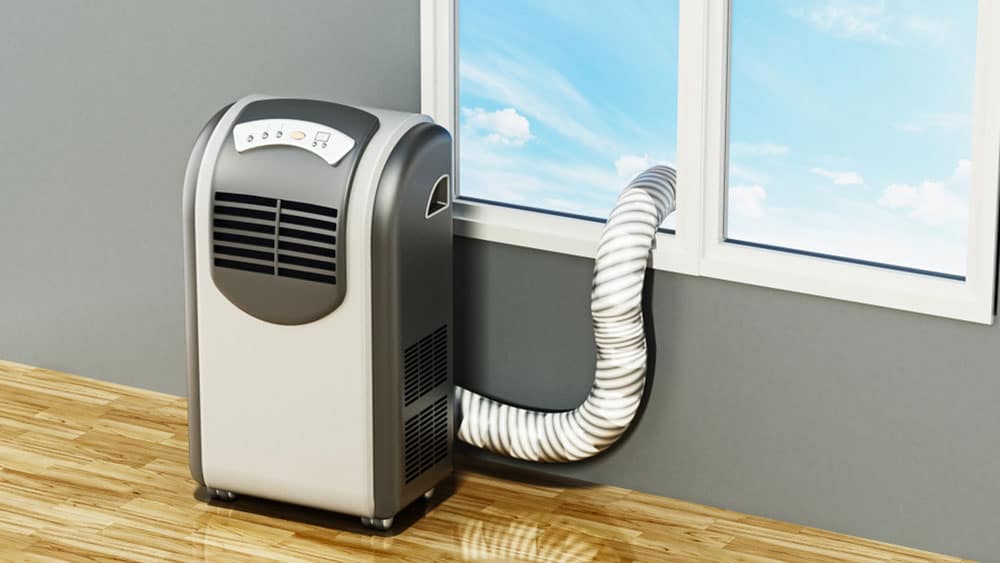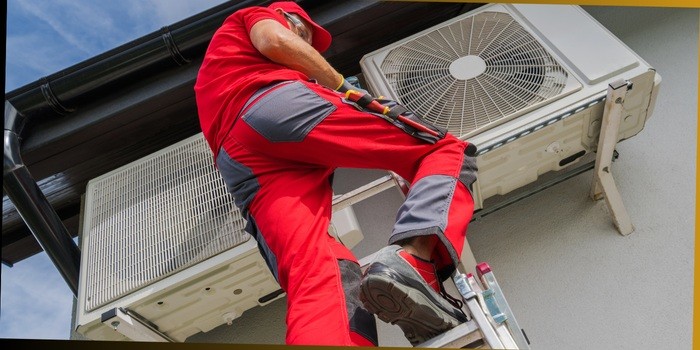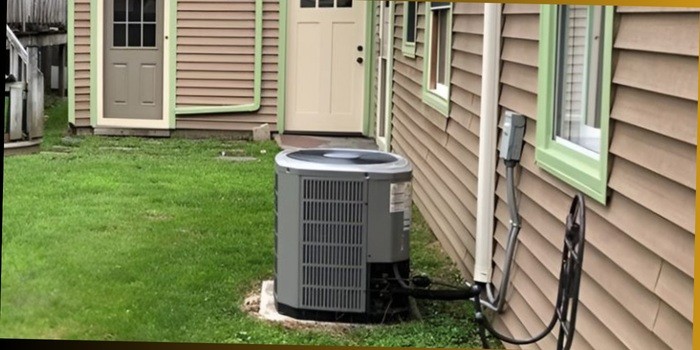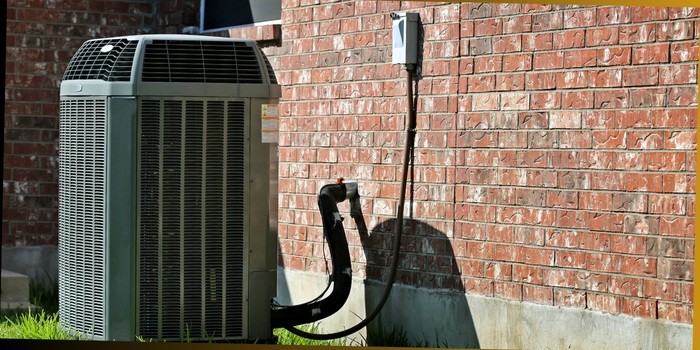Yes, most home AC portable units use Freon. Freon is a refrigerant that helps cool the air.
Freon has been the go-to refrigerant in air conditioners for many years. It plays a crucial role in the cooling process by absorbing heat from the air inside your home and releasing it outside. With the rise of portable AC units, many wonder if these compact devices also rely on Freon.
This question is important for those concerned about environmental impact, safety, and efficiency. In this blog post, we will explore whether portable AC units use Freon, the implications of its use, and what alternatives might be available. Understanding this can help you make informed decisions about your home cooling needs.
Introduction To Portable Ac Units
Portable air conditioners are a popular choice for cooling small spaces. They are compact, easy to move, and don’t require permanent installation. Perfect for apartments, dorm rooms, or offices, these units offer a convenient way to beat the heat without breaking the bank.
Types Of Portable Ac Units
When it comes to portable air conditioners, there are a few different types to choose from:
- Single-Hose Units: These are the most common type. They draw in warm air from the room, cool it, and expel the hot air outside through a single hose.
- Dual-Hose Units: These units are more efficient. They use one hose to draw air from outside and another to expel hot air. This setup prevents the unit from using already cooled indoor air for cooling.
- Evaporative Coolers: These are different from traditional AC units. They use water to cool the air and are best suited for dry climates.
Basic Functionality
Understanding how portable AC units work is key to using them effectively. Here’s a simple breakdown:
- Air Intake: The unit draws in warm air from the room.
- Cooling Process: This air passes over cold coils filled with refrigerant (often Freon). The refrigerant absorbs the heat from the air.
- Air Discharge: The now cool air is blown back into the room.
- Heat Expulsion: The absorbed heat is expelled outside through an exhaust hose.
Portable AC units are designed to be user-friendly. They typically come with easy-to-understand controls, making it simple for anyone to operate them. Plus, many units offer additional features like dehumidifiers and air purifiers, adding extra comfort to your living space.
Do Portable Ac Units Use Freon?
Most portable air conditioners use Freon as a refrigerant. Freon is a type of gas that’s vital in the cooling process. It absorbs heat and allows the air conditioner to produce cold air. However, some newer models might use alternative refrigerants that are more environmentally friendly.
In conclusion, portable AC units are versatile, efficient, and easy to use. Whether you’re looking to cool a small room or need a temporary solution, these units are worth considering. And yes, many do use Freon, just like traditional air conditioners.

Credit: www.youtube.com
Freon And Its Role
When discussing home air conditioning (AC) units, it’s impossible to ignore the importance of Freon. This chemical compound plays a crucial role in cooling our living spaces. But what exactly is Freon, and how does it function in portable AC units? Let’s dive in and explore more.
What Is Freon?
Freon is a brand name for a group of chemicals known as refrigerants. These are used in cooling devices. Think of Freon as the magic ingredient that makes your AC unit cool the air. It’s a colorless gas that can easily convert from a gas to a liquid and back again. This transformation is key to the cooling process.
Here’s a simple table to help understand Freon better:
| Aspect | Details |
|---|---|
| Type | Refrigerant |
| Appearance | Colorless gas |
| Function | Cools air in AC units |
Remember the last time you felt a cool breeze on a hot day? That’s Freon working its magic!
Freon In Ac Units
So, how does Freon work in your portable AC unit? The process is fascinating and pretty straightforward:
- Freon absorbs heat from the air inside your home.
- It then moves to the AC’s compressor, where it’s compressed into a high-pressure gas.
- Next, the gas travels to the condenser coils, releasing the absorbed heat outside.
- Finally, Freon cools down and returns to its liquid state, ready to start the cycle again.
Here’s a quick personal anecdote: I remember struggling with a heavy window AC unit before switching to a portable one. The convenience was a game-changer! And knowing Freon was efficiently cooling my space made me appreciate the technology even more.
But, did you know that not all new AC units use Freon anymore? Due to environmental concerns, many manufacturers are switching to more eco-friendly refrigerants. However, understanding Freon’s role gives us insight into how these systems work.
In conclusion, Freon is an essential part of the cooling process in many AC units. It’s like the unsung hero of our summer comfort. So, the next time you enjoy a cool room on a scorching day, you know who to thank!
Environmental Impact
Portable home AC units can affect the environment. This is due to the chemicals they use for cooling. Understanding their impact is crucial.
Freon And The Ozone Layer
Freon is a refrigerant used in many AC units. It helps cool the air inside your home. But Freon has a downside. It damages the ozone layer. The ozone layer protects us from harmful UV rays. When Freon leaks, it rises to the upper atmosphere. There, it breaks down ozone molecules. This thinning of the ozone layer increases UV exposure.
Eco-friendly Alternatives
There are greener choices for cooling. Many new AC units use safer refrigerants. These alternatives do not harm the ozone layer. Hydrofluorocarbons (HFCs) are one example. They have a lower impact on the environment. Some units also use natural refrigerants like propane. These options are better for the earth.
Choosing an eco-friendly AC unit helps reduce environmental harm. It is a simple step towards a greener future. Consider the type of refrigerant when buying a new unit. Your choice makes a difference.

Credit: www.amazon.com

Credit: cielowigle.com
Frequently Asked Questions
Do Portable Ac Units Need Freon?
Yes, portable AC units need Freon or another refrigerant to cool the air effectively. Regular maintenance ensures optimal performance.
How Do I Know If My Ac Unit Uses Freon?
Check the label on your AC unit’s compressor or user manual. Units made before 2010 often use Freon.
Do Portable Air Conditioners Need To Be Regassed?
Portable air conditioners typically do not need to be regassed. They are sealed systems and should maintain refrigerant levels. If cooling efficiency drops, check for leaks or faults. Always consult the user manual or a professional technician for issues. Proper maintenance ensures optimal performance.
How Do I Make My Portable Air Conditioner Cold Again?
Clean the air filter and vents. Ensure proper ventilation around the unit. Check and refill the refrigerant if needed. Keep the room insulated and shaded. Regular maintenance is key.
Do Portable Ac Units Use Freon?
Yes, many portable AC units use freon as a refrigerant.
Conclusion
Home AC portable units often use Freon for cooling. This refrigerant helps maintain a comfortable temperature. Always check the specific model’s details. Regular maintenance is essential to ensure efficiency. Proper care extends the life of your unit. Be mindful of environmental impact.
Dispose of old units responsibly. Stay cool and enjoy your portable AC’s benefits.





